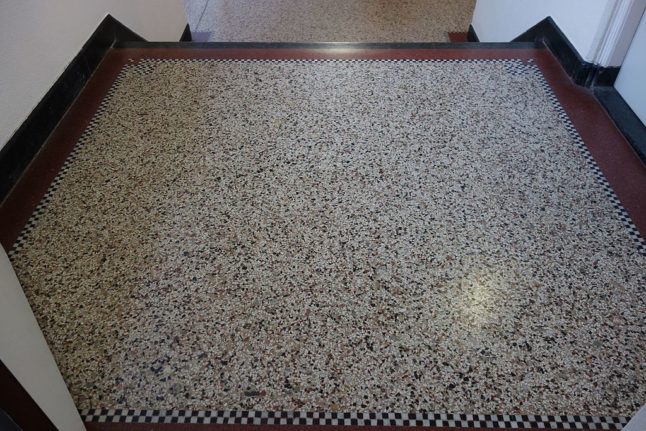If you’re not familiar with the term terrazzo floors, they are made from poured cement studded with marble chips, pieces of granite or glass.
This type of flooring originated in Italy in the 16th century but started to become popular in many countries during the 1920s.
It has been used for decades in Spain and was favoured above many other types of flooring because it was very affordable, water resistant and could be created in many different colours.
Terrazzo began to be used everywhere in the 1970s and 1980s and it was very popular, however, soon afterwards it fell out of fashion because it was so overused and people began to associate terrazzo with low-quality construction.

Many terrazzo floors were also made with grey, black, white and brown colours and people started thinking they were dull and boring. The arrival of new floorings caused it to be used less and less, and architects, interior designers and decorators, no longer favoured it.
Despite this, terrazzo is still present in a significant percentage of homes throughout the country, most often in older homes and many associate it with grandparents’ houses.
But, as with all types of fashion all over the world, everything comes and goes in circles. Whether you love it or hate it, in recent years terrazzo has come back into fashion.
According to an Elle Décor Spain article published in 2022, terrazzo flooring is coming back into fashion and people are once again asking for it to be installed in their homes.

Over the last few years, the style has been reinvented, renewed and floorings created in new and attractive colours.
Perhaps, it’s not even considered as ugly, but as beautiful and stylish by many.
Terrazzo is starting to be used on floors again in new constructions in Spain, it’s also being used in various ways to create table tops, archways, in bathrooms and even to make other pieces of furniture.



 Please whitelist us to continue reading.
Please whitelist us to continue reading.
Member comments